Think in the Morning tries to post a poem on our Facebook page every morning. Often the poem has a connection to those early hours when we are most productive. The poems need not be the “best” work of the chosen poet, but they must move us in a special way. Each poem is paired with an original work of art. Most often these are selections from our collection of Sea Gull Cellar Bar Napkin Art. Sometimes they are photographs or copies of paintings. Whenever possible the artist is identified. Additional information on the poets can be found on our Facebook page.
The Sea Gull Napkin Artists were a very special group. You can read about them HERE and HERE and in nearly every post on this site you can find examples within the articles. One of our goals has been to once again bring this amazing art to life and to make it more widely accessible. Think in the Morning believes that poetry and art work well together. We hope you agree.
Green
D. H. Lawrence
The dawn was apple green,
The sky was green wine held up in the sun,
The moon was a golden petal between.
She opened her eyes, and green
They shone, clear like flowers undone,
For the first time, now for the first time seen.
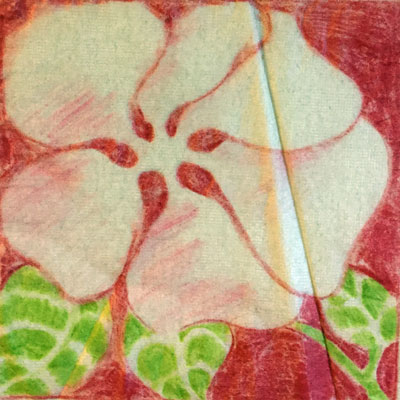
Sea Gull Cellar Bar Napkin Art, artist unknown
Read The Old Poets
Roberto Bolaño
Translated by Laura Healy in The Unknown University
Read the old poets, my son
and you won’t regret it
Between the cobwebs and rotten wood
of ships stranded in Purgatory
that’s where they are
singing!
ridiculous and heroic!
The old poets
Burning with their offerings
Nomads slit open and offered up
to Nothingness
(but they do not live in Nothingness;
they live in Dreams)
Read the old poets
and take care of their books
It’s one of the few bits of advice
your father can give you
Lee a los Viejos Poetas, Hijo Mio
Lee a los viejos poetas, hijo mío
y no te arrepentirás
Entre las telarañas y las maderas podridas
de barcos varados en el Purgatorio
allí están ellos
¡cantando!
¡ridículos y heroicos!
Los viejos poetas
Palpitantes en sus ofrendas
Nómades abiertos en canal y ofrecidos
a la Nada
(pero ellos no viven en la Nada
sino en los Sueños)
Lee a los viejos poetas
y cuida sus libros
Es uno de los pocos consejos
que te puede dar tu padre
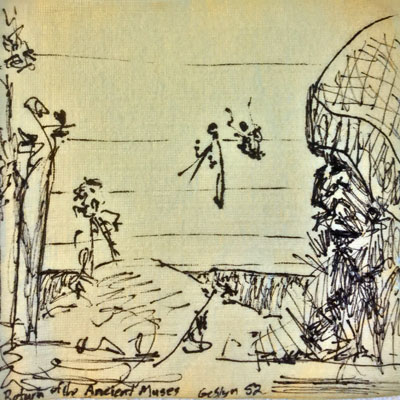
Sea Gull Cellar Bar Napkin Art, Goslyn artist
The Harbor Dawn, from The Bridge
Hart Crane
Insistently through sleep — a tide of voices —
They meet you listening midway in your dream,
The long, tired sounds, fog-insulated noises:
Gongs in white surplices, beshrouded wails,
Far strum of fog horns … signals dispersed in veils.
And then a truck will lumber past the wharves
As winch engines begin throbbing on some deck;
Or a drunken stevedore’s howl and thud below
Comes echoing alley-upward through dim snow.
And if they take your sleep away sometimes
They give it back again. Soft sleeves of sound
Attend the darkling harbor, the pillowed bay;
Somewhere out there in blankness steam
Spills into steam, and wanders, washed away
— Flurried by keen fifings, eddied
Among distant chiming buoys — adrift. The sky,
Cool feathery fold, suspends, distills
This wavering slumber. … Slowly —
Immemorially the window, the half-covered chair
Ask nothing but this sheath of pallid air.
And you beside me, blessed now while sirens
Sing to us, stealthily weave us into day —
Serenely now, before day claims our eyes
Your cool arms murmurously about me lay.
While myriad snowy hands are clustering at the panes —
your hands within my hands are deeds;
my tongue upon your throat — singing
arms close; eyes wide, undoubtful
dark
drink the dawn —
a forest shudders in your hair!
The window goes blond slowly. Frostily clears.
From Cyclopean towers across Manhattan waters
— Two — three bright window-eyes aglitter, disk
The sun, released — aloft with cold gulls hither.
The fog leans one last moment on the sill.
Under the mistletoe of dreams, a star —
As though to join us at some distant hill —
Turns in the waking west and goes to sleep.
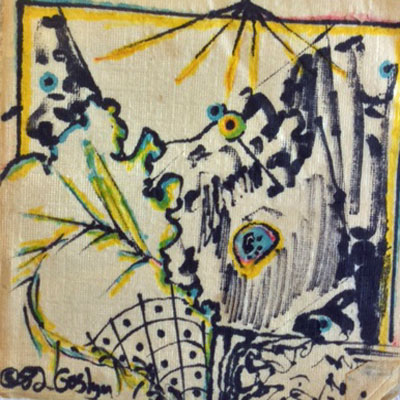
Sea Gull Cellar Bar Napkin Art, Goslyn artist
Impression du Matin
Oscar Wilde
The Thames nocturne of blue and gold
Changed to a Harmony in grey:
A barge with ochre-coloured hay
Dropt from the wharf: and chill and cold
The yellow fog came creeping down
The bridges, till the houses’ walls
Seemed changed to shadows, and S. Paul’s
Loomed like a bubble o’er the town.
Then suddenly arose the clang
Of waking life; the streets were stirred
With country waggons: and a bird
Flew to the glistening roofs and sang.
But one pale woman all alone,
The daylight kissing her wan hair,
Loitered beneath the gas lamps’ flare,
With lips of flame and heart of stone.
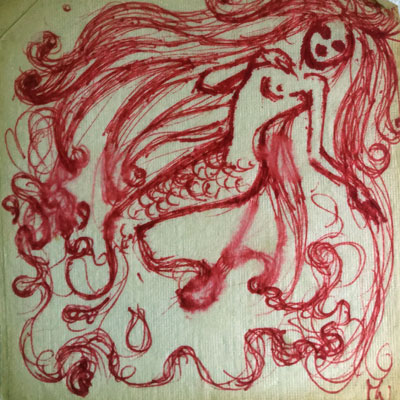
Sea Gull Cellar Bar Napkin Art, artist unknown
The Dawn
William Butler Yeats
I would be ignorant as the dawn
That has looked down
On that old queen measuring a town
With the pin of a brooch,
Or on the withered men that saw
From their pedantic Babylon
The careless planets in their courses,
The stars fade out where the moon comes,
And took their tablets and did sums;
I would be ignorant as the dawn
That merely stood, rocking the glittering coach
Above the cloudy shoulders of the horses;
I would be—for no knowledge is worth a straw—
Ignorant and wanton as the dawn.
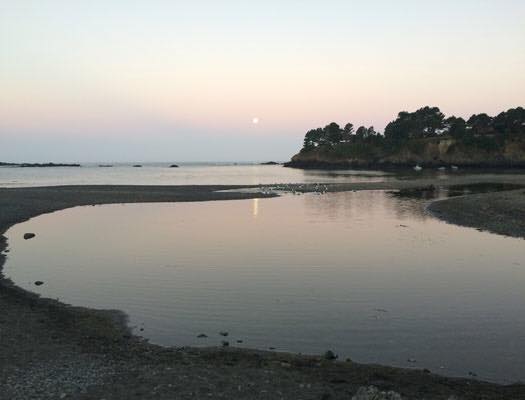
Things They Don’t Know
Juan Gelman
Translated by Hardie St. Martin
dark times/ filled with light/ the sun
spreads sunlight over the city split
by sudden sirens/the police hunt goes on/ night falls and we’ll
make love under this roof/ our eighth
in one month/ they know almost everything about us/ except
the plaster ceiling we make love
under/ and they also know nothing about
the rundown pine furniture under the last ceiling/ or
about the window the night pounded on while you shone like the sun/ or
about the beds or the floor where
we made love this month/ with faces around us like the sun
spreading sunlight over the city
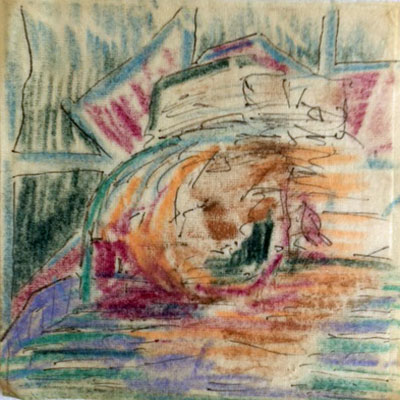
Sea Gull Cellar Bar Napkin Art, Goslyn artist
Waking From Sleep
Robert Bly
Inside the veins there are navies setting forth
Tiny explosions at the water lines
And seagulls weaving in the wind of the salty blood.
It is the morning. The country has slept the whole winter.
Window seats were covered with fur skins the yard was full
Of stiff dogs and hands that clumsily held heavy books.
Now we wake and rise from bed and eat breakfast!-
Shouts rise from the harbor of the blood
Mist and masts rising the knock of wooden tackle in the sunlight.
Now we sing and do tiny dances on the kitchen floor.
Our whole body is like a harbor at dawn;
We know that our master has left us for the day.
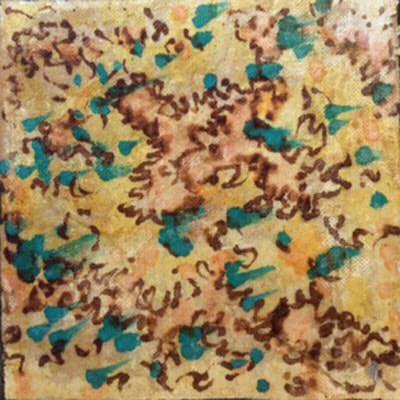
Sea Gull Cellar Bar Napkin Art, artist unknown
Nocturne
Rosario Castellanos
Translated by Magda Bogin
Time is too long for life;
For knowledge not enough.
What have we come for, night, heart of night?
All we can do is dream, or die,
Dream that we do not die
And, at times, for a moment, wake.
Nocturne
Rosario Castellanos
Para vivir es demasiado el tiempo;
Para saber no es nada.
A que vinimos, moche, Corazon de la
Noche?
No es possible sino sonar, morir,
Sonar que no morimos
Y, a veces, un instante, despertar.
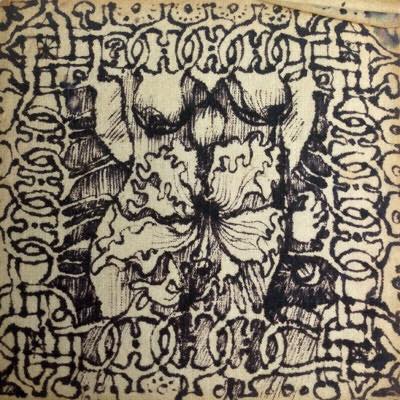
Sea Gull Cellar Bar Napkin Art, artist unknown
In the Open Field
Stephen Dunn
That man in the field staring at the sky
without the excuse of a dog
or a rifle—there must be a reason
why I’ve put him there.
Only moments ago, he didn’t exist.
He might be claiming this field
as his own, centering himself in it
until confident he belongs. Or
he could be dangerous, one of those
men who doesn’t know
why he talks to God.
I thought of making him a flamingo
standing alone on one pink leg,
a symbol of discordancy
between object and environment.
But I’ve grown so weary of inventions
that startle but don’t satisfy.
I think he must have come to grieve
a good friend’s death, and just wants
to stand there, numbly, quite sure
the sky he’s looking at is vacant.
But I see that he may be smiling—
his friend’s death was years ago—
and he might be out there to savor
the solitary elation of having discovered
what had eluded him until now.
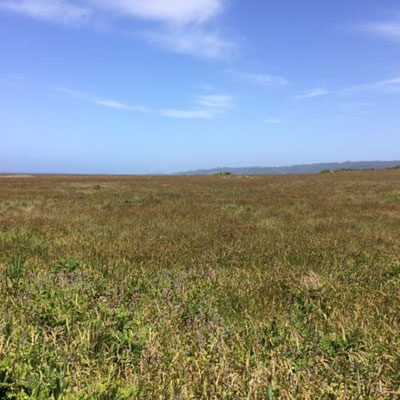
Aubade
Philip Larkin
I work all day, and get half-drunk at night.
Waking at four to soundless dark, I stare.
In time the curtain-edges will grow light.
Till then I see what’s really always there:
Unresting death, a whole day nearer now,
Making all thought impossible but how
And where and when I shall myself die.
Arid interrogation: yet the dread
Of dying, and being dead,
Flashes afresh to hold and horrify.
The mind blanks at the glare. Not in remorse
—The good not done, the love not given, time
Torn off unused—nor wretchedly because
An only life can take so long to climb
Clear of its wrong beginnings, and may never;
But at the total emptiness for ever,
The sure extinction that we travel to
And shall be lost in always. Not to be here,
Not to be anywhere,
And soon; nothing more terrible, nothing more true.
This is a special way of being afraid
No trick dispels. Religion used to try,
That vast moth-eaten musical brocade
Created to pretend we never die,
And specious stuff that says No rational being
Can fear a thing it will not feel, not seeing
That this is what we fear—no sight, no sound,
No touch or taste or smell, nothing to think with,
Nothing to love or link with,
The anaesthetic from which none come round.
And so it stays just on the edge of vision,
A small unfocused blur, a standing chill
That slows each impulse down to indecision.
Most things may never happen: this one will,
And realisation of it rages out
In furnace-fear when we are caught without
People or drink. Courage is no good:
It means not scaring others. Being brave
Lets no one off the grave.
Death is no different whined at than withstood.
Slowly light strengthens, and the room takes shape.
It stands plain as a wardrobe, what we know,
Have always known, know that we can’t escape,
Yet can’t accept. One side will have to go.
Meanwhile telephones crouch, getting ready to ring
In locked-up offices, and all the uncaring
Intricate rented world begins to rouse.
The sky is white as clay, with no sun.
Work has to be done.
Postmen like doctors go from house to house.
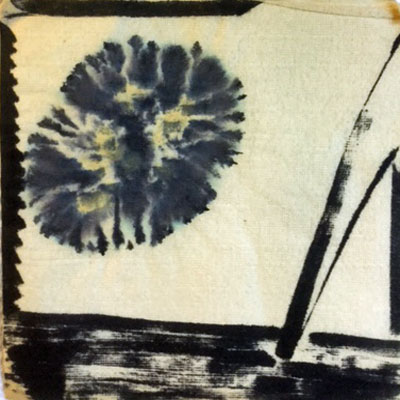
Sea Gull Cellar Bar Napkin Art, artist unknown
It is Night in my Study
Miguel de Unamuno
It is night, in my study.
The deepest solitude; I hear the steady
shudder in my breast
–for it feels all alone,
and blanched by my mind–
and I hear my blood
with even murmur
fill up the silence.
You might say the thin stream
falls in the waterclock and fills the bottom.
Here, in the night, all alone, this is my study;
the books don’t speak;
my oil lamp
bathes these pages in a light of peace,
light of a chapel.
The books don’t speak;
of the poets, the meditators, the learned,
the spirits drowse;
and it is as if around me circled
cautious death.
I turn at times to see if it waits,
I search the dark,
I try to discern among the shadows
its thin shadow,
I think of heart failure,
think about my strong age; since my fortieth year
two more have passed.
Toward a looming temptation
here, in the solitude, the silence turns me–
the silence and the shadows.
And I tell myself: “Perhaps when soon
they come to tell me
that supper awaits,
they will discover a body here
pallid and cold
–the thing that I was, this one who waits–
just like those books quiet and rigid,
the blood already stopped,
jelling in the veins,
the chest silent
under the gentle light of the soothing oil,
a funeral lamp.
I tremble to end these lines
that they do not seem
an unusual testament,
but rather a mysterious message
from the shade beyond,
lines dictated by the anxiety
of eternal life.
I finished them and yet I live on.
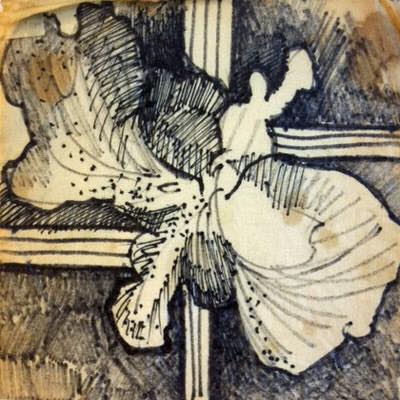
Sea Gull Cellar Bar Napkin Art, artist unknown
Nothing Gold Can Stay
Robert Frost
Nature’s first green is gold,
Her hardest hue to hold.
Her early leaf’s a flower;
But only so an hour.
Then leaf subsides to leaf.
So Eden sank to grief,
So dawn goes down to day.
Nothing gold can stay.
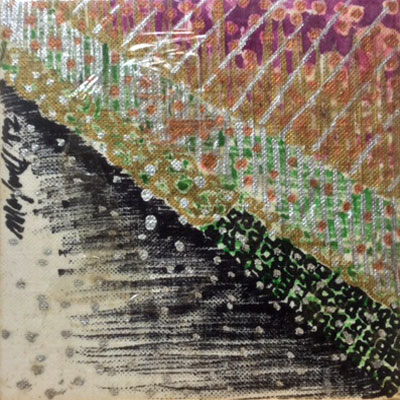
Sea Gull Cellar Bar Napkin Art, James Maxwell artist
Early One Morning
Edward Thomas
Early one morning in May I set out,
And nobody I knew was about.
I’m bound away for ever,
Away somewhere, away for ever.
There was no wind to trouble the weathercocks.
I had burnt my letters and darned my socks.
No one knew I was going away,
I thought myself I should come back some day.
I heard the brook through the town gardens run.
O sweet was the mud turned to dust by the sun.
A gate banged in a fence and banged in my head.
‘A fine morning, sir’, a shepherd said.
I could not return from my liberty,
To my youth and my love and my misery.
The past is the only dead thing that smells sweet,
The only sweet thing that is not also fleet.
I’m bound away for ever,
Away somehwere, away for ever.

Oil Painting of Sea Gull Garden, Carl Mays
Morning Song
Sylvia Plath
Love set you going like a fat gold watch.
The midwife slapped your footsoles, and your bald cry
Took its place among the elements.
Our voices echo, magnifying your arrival. New statue.
In a drafty museum, your nakedness
Shadows our safety. We stand round blankly as walls.
I’m no more your mother
Than the cloud that distills a mirror to reflect its own slow
Effacement at the wind’s hand.
All night your moth-breath
Flickers among the flat pink roses. I wake to listen:
A far sea moves in my ear.
One cry, and I stumble from bed, cow-heavy and floral
In my Victorian nightgown.
Your mouth opens clean as a cat’s. The window square
Whitens and swallows its dull stars. And now you try
Your handful of notes;
The clear vowels rise like balloons.
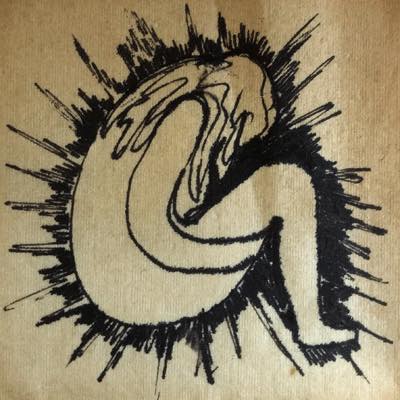
Sea Gull Cellar Bar Napkin Art, artist unknown
Dawn
Arthur Rimbaud
translated by Baudelaire Jones
I kissed the dawn of summer.
Nothing stirred before the palace. Water was motionless. Shadow claimed the woodland road. I walked, lively and with warm breath, noticing precious stones along the way; and wings rose without a sound.
First, I encountered a form full of freshness and light–a flower who told me her name.
I laughed at the bright waterfall pounding trees into disarray: at the silver summit, I perceived the goddess.
I lifted her veils, one by one. My arms trembled with delight. But across the plain, I denounced her to the cock. In the city, she fled among steeples and domes, and I chased after like a beggar on the banks of marble.
On a little road near the forest, I bound her with gathered veils, and gathered my courage to touch her colossal body. At once, both dawn and child fell down at the woodpile.
On waking, I found that it was noon.
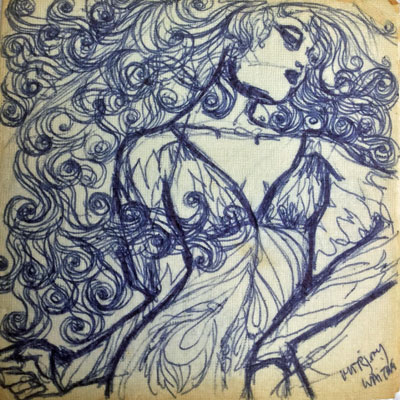
Sea Gull Cellar Bar Napkin Art, artist Marjorie Whittig
The Nobodies
Eduardo Galeano
translated by Cedric Belfrage
Fleas dream of buying themselves a dog, and nobodies dream of escaping poverty: that one magical day good luck will suddenly rain down on them–will rain down in buckets. But good luck doesn’t rain down yesterday, today, tomorrow, or ever. Good luck doesn’t even fall in a fine drizzle, no matter how hard the nobodies summon it, even if their left hand is tickling, or if they begin the new day with their right foot, or start the new year with a change of brooms.
The nobodies: nobody’s children, owners of nothing. The nobodies: the no ones, the nobodied, running like rabbits, dying through life, screwed every which way.
Who are not, but could be.
Who don’t speak languages, but dialects.
Who don’t have religions, but superstitions.
Who don’t create art, but handicrafts.
Who don’t have culture, but folklore.
Who are not human beings, but human resources.
Who do not have faces, but arms.
Who do not have names, but numbers.
Who do not appear in the history of the world, but in the police blotter of the local paper.
The nobodies, who are not worth the bullet that kills them.
Los Nadies
Sueñan las pulgas con comprarse un perro y sueñan los nadies con salir de pobres, que algún mágico día llueva de pronto la buena suerte, que llueva a cántaros la buena suerte; pero la buena suerte no llueve ayer, ni hoy, ni mañana, ni nunca, ni en llovizna cae del cielo la buena suerte, por mucho que los nadies la llamen y aunque les pique la mano izquierda, o se levanten con el pie derecho, o empiecen el año cambiando de escoba.
Los nadies: los hijos de nadie, los dueños de nada. Los nadies: los ningunos, los niguneados, corriendo la liebre, muriendo la vida, jodidos, rejodidos.
Que no son, aunque sean.
Que no hablan idiomas, sino dialectos.
Que no profesan religiones, sino supersticiones.
Que no hacen arte, sino artesanías.
Que no practican cultura, sino folklore.
Que no son seres humanos, sino recursos humanos.
Que no tienen cara, sino brazos.
Que no tienen nombre, sino número.
Que no figuran en la historia universal, sino en la crónica roja de la prensa local.
Los nadies, que cuestan menos que la bala que los mata.
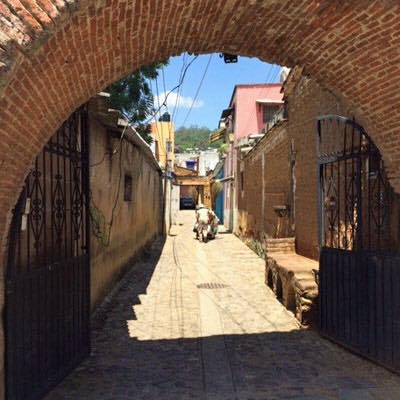
Sonnet 5 from Clearances
Seams Heaney
The cool that came off sheets just off the line
Made me think the damp must still be in them
But when I took my corners of the linen
And pulled against her, first straight down the hem
And then diagonally, then flapped and shook
The fabric like a sail in a cross-wind,
They made a dried-out undulating thwack.
So we’d stretch and fold and end up hand to hand
For a split second as if nothing had happened
For nothing had that had not always happened
Beforehand, day by day, just touch and go,
Coming close again by holding back
In moves where I was x and she was o
Inscribed in sheets she’d sewn from ripped-out flour sacks.
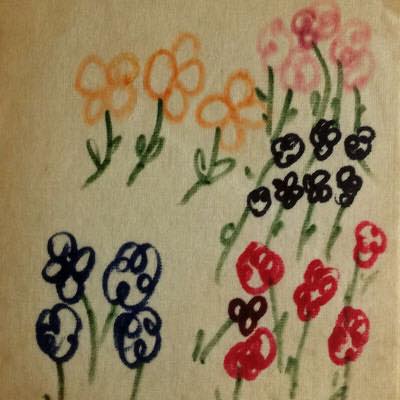
Sea Gull Cellar Bar Napkin Art, artist unknown
Morning in the Burned House
Margaret Atwood
In the burned house I am eating breakfast.
You understand: there is no house, there is no breakfast, yet here I am.
The spoon which was melted scrapes against
the bowl which was melted also.
No one else is around.
Where have they gone to, brother and sister,
mother and father? Off along the shore,
perhaps. Their clothes are still on the hangers,
their dishes piled beside the sink,
which is beside the woodstove
with its grate and sooty kettle,
every detail clear,
tin cup and rippled mirror.
The day is bright and songless,
the lake is blue, the forest watchful.
In the east a bank of cloud
rises up silently like dark bread.
I can see the swirls in the oilcloth,
I can see the flaws in the glass,
those flares where the sun hits them.
I can’t see my own arms and legs
or know if this is a trap or blessing,
finding myself back here, where everything
in this house has long been over,
kettle and mirror, spoon and bowl,
including my own body,
including the body I had then,
including the body I have now
as I sit at this morning table, alone and happy,
bare child’s feet on the scorched floorboards
(I can almost see)
in my burning clothes, the thin green shorts
and grubby yellow T-shirt
holding my cindery, non-existent,
radiant flesh. Incandescent.
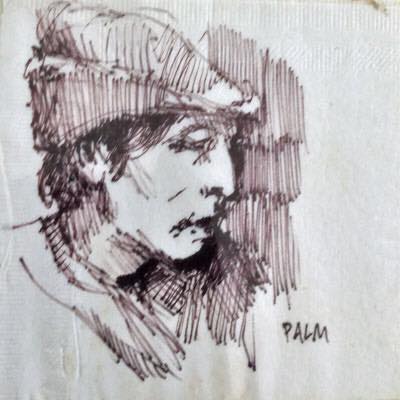
Sea Gull Cellar Bar Napkin Art, Olaf Palm artist
Autumn Daybreak
Edna St. Vincent Millay
Cold wind of autumn, blowing loud
At dawn, a fortnight overdue,
Jostling the doors, and tearing through
My bedroom to rejoin the cloud,
I know–for I can hear the hiss
And scrape of leaves along the floor–
How may boughs, lashed bare by this,
Will rake the cluttered sky once more.
Tardy, and somewhat south of east,
The sun will rise at length, made known
More by the meagre light increased
Than by a disk in splendour shown;
When, having but to turn my head,
Through the stripped maple I shall see,
Bleak and remembered, patched with red,
The hill all summer hid from me.
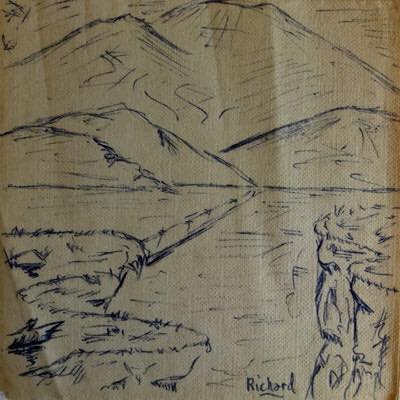
Sea Gull Cellar Bar Napkin Art, Richard Albright artist

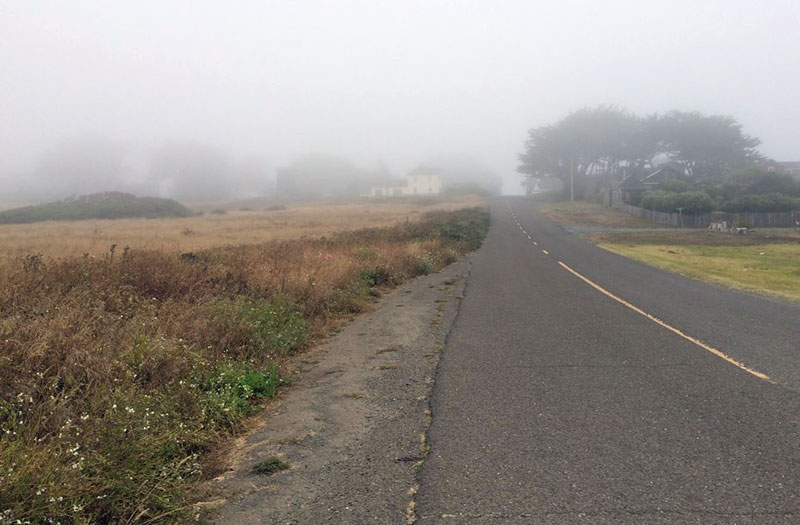
Dear Dave: This was extremely moving this morning…some of the photos of our beautiful Northcoast are just stunning. The GREEN and NOCTURNE in particular spoke to me. Thank you so much for giving us something so wonderful.
Thanks for the response. It makes all the work worthwhile.